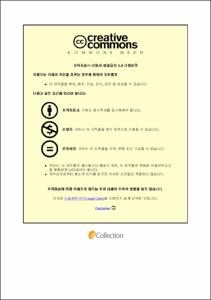실비아 플라스의 고백시에 나타난 페미니스트적 비전
- Alternative Title
- The Feminist Vision in the Confessional Poetry of Sylvia Plath
- Abstract
- Sylvia Plath(1932-63) is one of the most outstanding representative confessional poets in twentieth century America. Plath, who had been very clever and creative since childhood, began her writing career with an affection for the literary works of great canonical writers. Soon, however, she realized that she could not pave the way for herself as an independent female poet through impersonal poetry that removed the poet's individuality. This realization allowed her to incorporate the form of confessional poetry. Through this form, she expresses her feminist voice against the huge wall of male-centered ideology that had frustrated her as she grew up as a woman. Confessional poetry serves as a venue for her to evolve from a self-reliant woman to a feminist poet who pushes her limits as a woman by pouring out miraculous works to the end of her life.
Feminist criticism began in the United States in the 1970s. It studied the images and themes of women presented in the writings of female writers. Feminist critics highly praised Plath's work for exploring the identity of women with an attitude of active resistance, showing the deep inside of women consumed and sacrificed in a patriarchal society. This study aims to examine the development process of poetical works by Sylvia Plath who reflects on feminist vision through her confessional poetic mode.
Chapter II focuses on how Plath overturns female-discriminatory Bibles and myths, and evokes her voice as a feminist through confessional poems which present the father as a poetic muse. Then I analyze what father means in her works, how the meanings associated with father have changed through her writing career, and how Plath's identity is firmly established as a feminist.
Chapter Ⅲ examines the attitude of Plath toward which is stereotyped femininity forced on women through her poems including reflections on pregnancy, childbirth, and motherhood. And I explore how she gives her voice on women’s issues such as an extremely discriminatory marriage system through her confessional poems.
Chapter Ⅳ takes a look at Plath’s works showing the recovery and completion of a female subject. After having broken up with Ted Hughes, she tried to complete a reborn female ego disconnected with manhood.
It is hoped that this study will contribute to the critical perspective on Sylvia Plath as a representative feminist who reflects on women’s issues in the patriarchal American society in the 1950s and 1960s on the basis of her personal life.
- Issued Date
- 2020
- Awarded Date
- 2020. 8
- Type
- Dissertation
- Publisher
- 부경대학교
- Alternative Author(s)
- Hwang, An Na
- Affiliation
- 부경대학교 대학원
- Department
- 대학원 영어영문학과
- Advisor
- 윤희수
- Table Of Contents
- Ⅰ. 서론 1
Ⅱ. 남성중심주의에 대한 도전 14
Ⅲ. 강제된 여성성에 대한 거부 64
Ⅳ. 여성 주체의 회복을 위한 모색 112
Ⅴ. 결론 158
인용문헌 164
- Degree
- Doctor
- Files in This Item:
-
-
Download
 실비아 플라스의 고백시에 나타난 페미니스트적 비전.pdf
기타 데이터 / 36.03 MB / Adobe PDF
실비아 플라스의 고백시에 나타난 페미니스트적 비전.pdf
기타 데이터 / 36.03 MB / Adobe PDF
-
Items in Repository are protected by copyright, with all rights reserved, unless otherwise indicated.